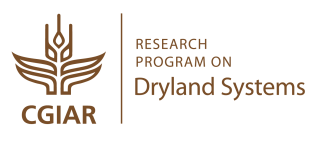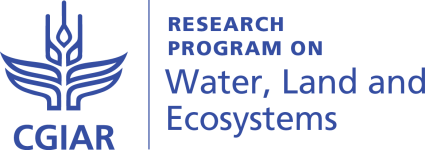Tunisian National Partners Development through Global Geo-Informatics Options by Context (GeOC)
Published on: August 18, 2017, Submitted by Fajr Fradi on: August 11, 2017
The Global Geo-Informatics Options by Context (GeOC) tool has been presented to a wide audience of national partners in Tunisia.
Sustainable Land Management (SLM) solutions developed with the "Options by Context" are presented and discussed at the national partners development workshop announcing GeOC.
Sustainable Land Management (SLM) practices have been thoroughly advocated by a wide set of worldwide partnerships – such as the CGIAR, the United Nations Convention to Combat Desertification (UNCCD) and Economics of Land Degradation (ELD) – but still selectively applied. While the overall natural, social and economic results are found positive from the empirical perspective, the actual “Impact Evaluation of SLM Options to Achieve Land Degradation Neutrality” constitutes an ongoing project, focused on Tunisia but potentially targeting all of the world’s degraded lands. This holistic, forward-thinking initiative aims at providing solid geoinformatic guidance for applying SLM practices through the Global Geo-Informatics Options by Context (GeOC), an advanced web-GIS, able to present suitable options according to the implementation contexts.
The online tool has been presented on 16th-17th March, in Zaghouan (Tunisia), to local government, potential investors, several farmers and three Tunisian National Agricultural Research Systems (NARS) – Institution de la Recherche et de l’Enseignement Supérieur Agricoles (IRESA), Institut National de Recherches en Génie Rural, Eaux et Forêts (INRGREF), Institut des Régions Arides de Médenine (IRA) – as part of the competence-transferring workshop “SLM Options by Context: Approach and Geospatial Tool to Support Achieving Land Degradation Neutrality”.
The event has been opened by the remark of Dr. Richard Thomas (ICARDA) on the scientific but also economic and strategic advantages that Land Degradation Neutrality presents as long-term objective. The opportunities of investing in SLM practices cover many areas, from more prosperous nutrition to maximized natural resources and related usage, more reliable research and national development programs and more. The entity of the return on investment shall be evaluated in relation to the impact of SLM practices in different contexts over time.
The “GeOC tool in details” session, led by Dr. Quang Bao Le (ICARDA), practically introduced the web-GIS to the workshop participants, soon able to manage the tool and start evaluate its efficiency. The information disseminated in the workshop covered all aspects of the tool, such as the architecture, the quality of data insertion and any logistic requirement. Much of this information is contained in the open GeOC User Guide, also available online, and the web-GIS shall be fully operational through Monitoring, Evaluation & Learning by the end of the summer of 2017.
GeOC has indeed received much appreciation due to its actual and potential usefulness, strengthen the spirit of cooperation and engagement among the potential investors and end users such as local national partners, scientists, farmers and stakeholders.
Acknowledgement
GeOC is the result of the synergic efforts by GIZ, the CGIAR Research Program on Dryland Systems (CRP-DS), CGIAR Research Program on Water, Land and Ecosystems (CRP-WLE), The International Center for Agricultural Research in the Dry Areas (ICARDA), ICARDA Geoinformatics Unit (GIS), Institution de la Recherche et de l’Enseignement Supérieur Agricoles (IRESA), Institut National de Recherches en Génie Rural, Eaux et Forêts (INRGREF), Institut des Régions Arides de Médenine (IRA).







